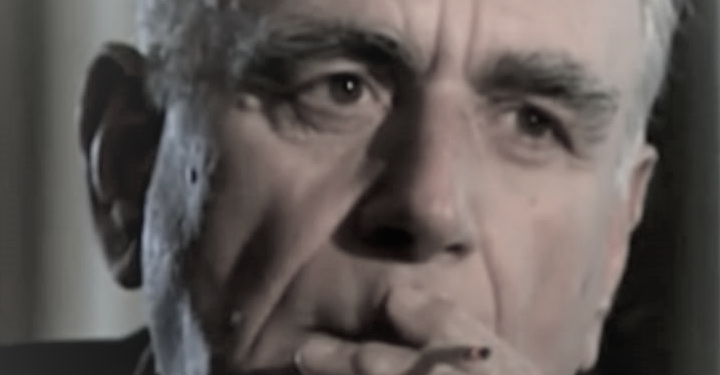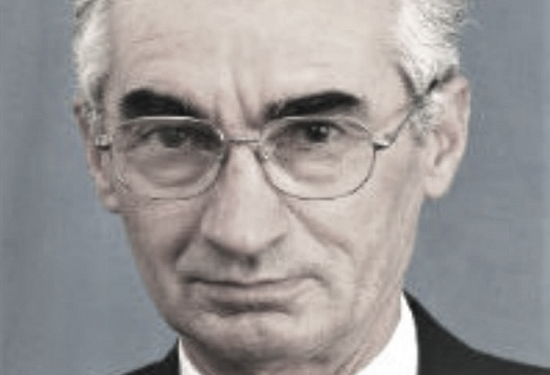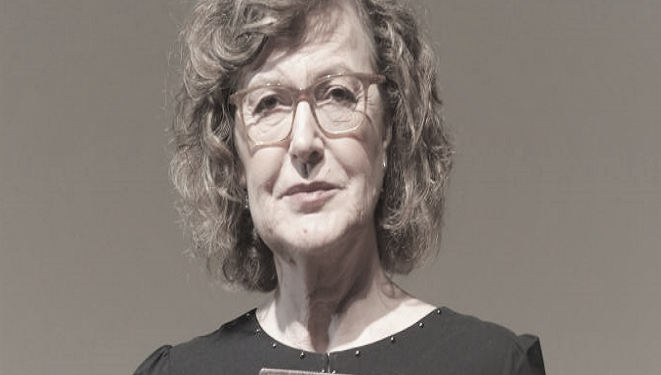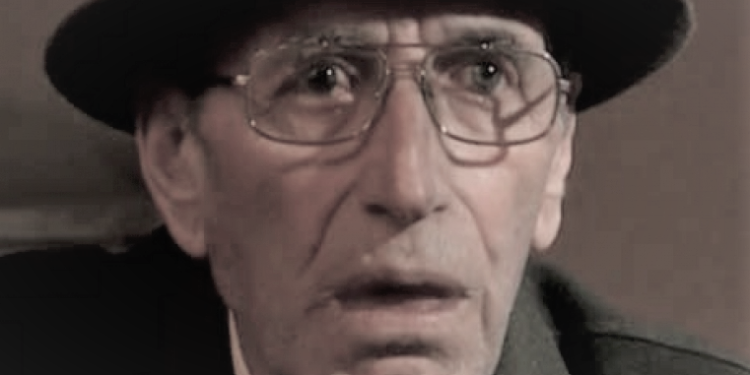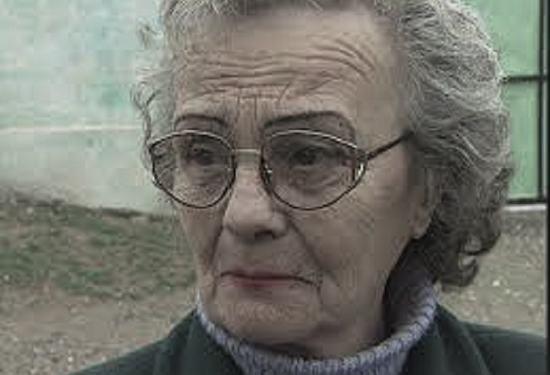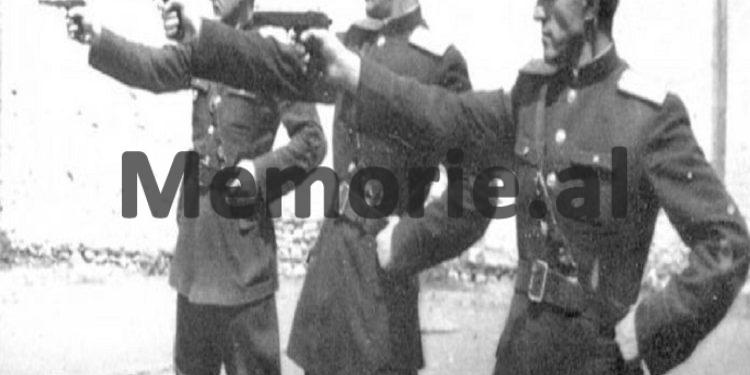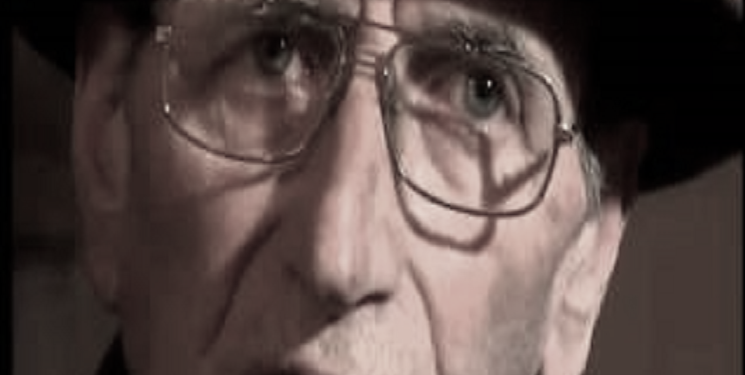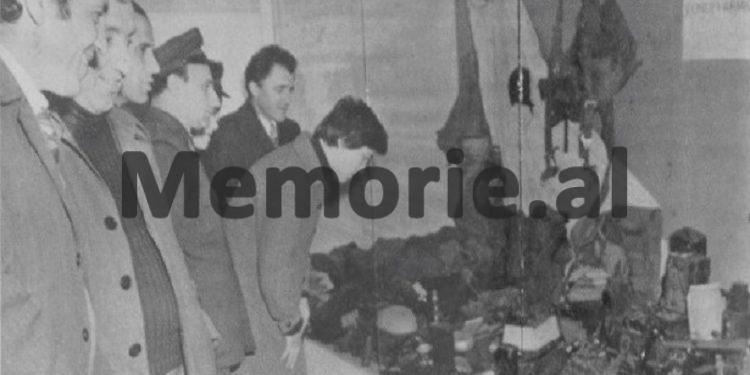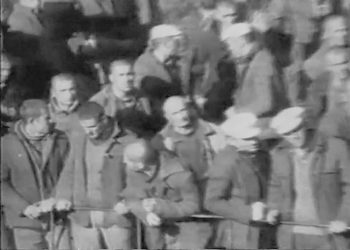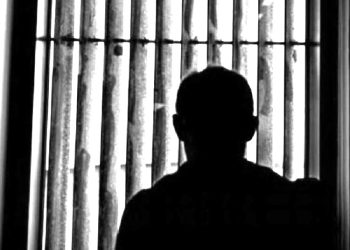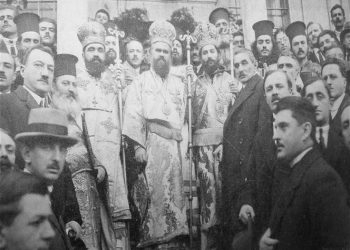By Eugene Merlika
– HUMAN LECTURE –
Memorie.al / On October 5, 2010, in Tirana, in one of the premises of the former “New Albania” Cinema Studio, in the “Marubi” hall, the International Human Rights Film Festival was opened. The organizers of the festival, on the first day, chose the film “Albanian Divorce” as the first of this important cultural activity. The film is of the documentary genre and is directed and written by Bulgarian Adela Peeva. The film has the merit of going far beyond the limits of a documentary that photographs a certain reality of a country or a period. It presents, through the life episodes of three mixed couples, a complete picture of communist Albania. Enver Hoxha’s Albania, the country of unceasing loyalty to the communist ideology, in its worst version, to that of the Georgian tyrant, Joseph Stalin, unfolds in the footage of a film of just over an hour, throughout its state space and social. Through the fate of the three couples, the dramatic and tragic course of their lives, the testimonies of the characters, the chilling truth of their statements, the spectator is shown, in all its destructive dimensions, the infamous spectacle of a dictatorship that knows no likeness throughout the European communist East…!
The architecture of the film is based on these three couples, three families from the 60s, formed by Albanian students who graduated from the countries of the former Socialist Camp and girls from these countries who fell in love with them and decided to live together in the land theirs. The director, Ms. Peeva, acquaints us with the commonality of the phenomena that she does not simply photograph, but tries to get inside them, of the mechanism that determines the movement, to understand its logic, if there will be one. But, in addition to the generalizing force of the events, their commonality, the author of the film also presents us with the particularity of the phenomena, the differences between the three families, which constitute the main axis of the film’s drama.
From the three families that, until the breakup with the Soviet Union, lived well and beautifully in their cities, working and having children, at the end of that long voyage in a sea agitated by tsunami waves of whims and spiritual and intellectual malice of a caste of criminals, led by a champion of the species, only one survives. The other two disintegrate, alienate, fade away, and disappear. This is the end of beast people, Security officers, or party secretaries, investigators and prosecutors, who were the black hand of the criminal system, in which they believed and for which they were proud to commit even the most monstrous crimes.
The selection of three families, with three different endings, all three placed in the grip of a dictatorship that recognizes itself as having the right to determine the fate of its citizens down to the smallest details, is as clever as it is accurate in its authenticity her.
People are arrested not when they commit crimes, but when the time of arrest comes, the time determined by the tyrant and his caste. Accusations are fabricated for him, the content of which does not match even the wildest fantasy of an ordinary person. In order to confirm these accusations, the arrested are kept in conditions of terror, testing on them the entire arsenal of the worst criminal experience of the Stalinist GPU and the even more refined methods of the Albanian State Security. And if the arrested stay, do not accept the charges, they are still punished, because this is the interest of the party and the regime.
Before this reality, which has been the normality of Socialist Albania, a reality in which tens of thousands of innocent citizens have been killed and maimed, the fate of the three families is a generalized representation of them. The consequences of parental arrests fall on children, the most vulnerable victims of the viciousness of a criminal system. The Albanian reality was filled with children who grew up without parents, who were forced to hate their parents, to despise them, to see them with the same eye of the State Security, to deny them. But in many such cases, it was the grandparents who took care of the children, in our case those of Minella and Vasili, were raised by their parents, in the best tradition of the human mentality of Albanian families. Something stood the tsunami, it did not collapse.
Different episodes, different attitudes, different lives. Minella and Elena stand the storm together, challenge the dictatorship, emerging morally victorious even though physically ruined. Vasil Orgocka sees his family destroyed, after his beloved wife, the Polish Barbara, the Albanian state turned her into a slave who lost all human abilities, as a result of being forced to take chemical substances. The tragedy is so chilling and compelling; it would alone be enough to bring an entire system to justice for human rights violations. The debilitating loneliness of two people, once in love and today alienated by the brutal violence of the state, is an indictment that the film forcefully unfolds before the viewer.
Equally powerful remains, in its kind, the drama of Voila, the Russian girl who came to Albania to consolidate her love in the union with the chosen boy. One day she is arrested and, after a while, she is informed that her husband wants a divorce…! In her spirit, she justifies her husband’s action, thinking that it serves to save the children from the consequences of her arrest. Later she learns that her lover has married another woman and the illusion of the beginning turns into a great disappointment, which takes devastating proportions when her son, then a doctor in a remote village of Peshkopia, refuses even to will meet after long years in prison. What a terrible drama, what a spiritual and moral ruin!
The film deals with only one view of the tragedy of Albanians, that of foreign women and their families. It was a small part of that reality, the whole of which was violence against “class enemies”, with the whole range of its destructive consequences on a good part of the population. But the film goes further: through conversations with people such as: Ylli Hila, Pandi Konomi, Dolores Velaj, representatives of the regime’s violence organs, it shows that the tragedy of the Albanians did not have only one architect, it was not only the product of a diabolical and paranoid mind of Enver Hoxha, as many witnesses of that experience want to present even today.
That tragedy, which still today finds adherents who shamefully hide behind the waves of the Internet, in most cases, at a simple public level, and in statements, books or interviews of political exponents such as the top of the pyramid, Ramiz Alia, etc. had many authors in all levels. It was an expression of a dangerous part of the organism of the Albanian people. Relying on justifications such as: “that was the time”, “we have fulfilled our duty”, “we have implemented the law”, and other justifications like these, show that a part of Albanians are little or not at all aware of the evil they have produced in their lives, with devastating consequences on the lives of innocent people.
The collapse of the system, its complete failure, the trial of history, has no meaning for them. They continue to live in their world of Enver and unpunished crime, advance in their careers or enjoy favorable pensions, regardless of whether the democratic government is pink or blue.. The film highlights this phenomenon and, indirectly, asserts a demand society’s morality, that of self-purification, of asking for forgiveness, of indicting and punishing the crime and its consequences. It is a request that, for twenty years, has fallen on deaf ears, because the communist mentality continues to survive in a new society, in new times, but which cannot be completely separated from the old one.
It is a problem that we carry on ourselves, without having the courage and strength to face it with wisdom, with awareness, with a critical and self-judgmental side, but also with the idea of tolerance that civilization forces us, and even forgiveness that religious doctrines teach us. . It’s a tangle that twists around our feet, that don’t let us move forward; see the future with the calmness of the one who doesn’t hide corpses on the shelves.
The film pits against each other Vasil Orgocka and his friends, unjustly condemned by the dictatorship, and their executioners who do not even feel the slightest remorse for the mutilated lives that must weigh on their consciences. There seems to be no point of meeting between them, the war, and the hatred continues, the abyss deepens. This shocking truth is clearly given to us by the film…! The fact that he has been traveling around Europe for three years, receiving honorable international awards, while no one has the courage to show him in Albania, is very significant.
He reveals to us the true dimensions of our impasse as a society and as a people, the inability to face the truth and openly affirm it. The fact that this film is produced by a Bulgarian director should make our art workers, not only cinematographers, reflect a lot on the necessity of their help as shapers of public opinion in solving the Gordian knot after Albanian communism, that of the honest, unequivocal, no-nonsense condemnation of the communist crime.
We thank Ms. Peeva from the bottom of our hearts, not only for the authenticity of presenting a painful part of our history and the high professional level of her work, but also for the great human lesson she gave us. Memorie.al
October 2010




